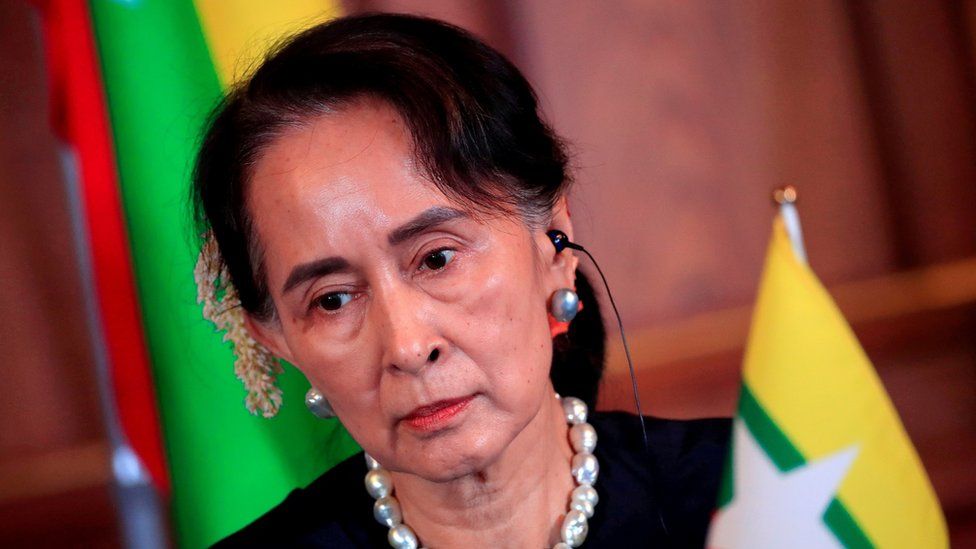According to reports from Myanmar, a court on Monday sentenced Daw Aung San Suu Kyi, the country’s deposed civilian leader, to four years in prison on accusations of inciting public disturbance and violating the Covid-19 guidelines. She is facing a succession of court decisions that might result in her being imprisoned for the rest of her life.
After being arrested in a military coup in February, Aung San Suu Kyi is facing a total of 11 counts, with the possibility of being sentenced to as much as two hundred and twenty-two years in jail.
Her proceedings, which have been regarded as politically motivated by the United Nations and other international organisations, have taken place in Naypyidaw, Myanmar’s capital, behind closed doors for the last two years. Because their conversations with the media may “destabilise the nation,” the junta has forbidden all five of her attorneys from interacting with reporters.
Her admirers in Myanmar see her as a demigod, describing her as a protector of the country’s democracy, for which she was awarded the Nobel Peace Prize in recognition of her efforts. Her international image, on the other hand, has been tainted as a result of her cooperation in the military’s enormous crimes against the Rohingya, a Muslim minority community in Myanmar.
It is expected that the guilty conviction would fuel a protest movement that has inspired thousands of civilians to take up weapons against the army since the generals took control of the country in February of this year.
On Sunday morning, a military vehicle crashed into a gathering of demonstrators who were waving banners depicting her photo and quotes from her on the streets of Yangon, Myanmar’s most populous city, resulting in the deaths of at least 15 people, according to local reports. At night, demonstrators continued to march in the streets, while locals expressed their displeasure by banging pots and pans in their homes.
A large number of people have congregated in the streets, physicians and nurses have taken time off work in protest, and many have refused to pay taxes as part of a campaign known as the Civil Disobedience Movement in the months after the coup.
Although the movement is under fear of arrest, there is still a strong public backing for it. Unprecedented numbers of troops are defecting, joining up with armed protestors and insurgent groups to wage hit-and-run operations against the government.
According to the Assistance Association for Political Prisoners (Burma), a rights group located in Thailand, the junta has reacted by clamping down, killing more than 1,300 individuals and detaining more than 10,600 others in the process.
Following a previous coup in 1962, the military was in control of the nation for more than half a century. At the time of her election in 2015, Ms. Aung San Suu Kyi was compelled to share power with the army, which selected 25 percent of the country’s legislators. In the next election in November 2020, she will lead her party to a landslide victory, trouncing the military-backed opposition party in the process.
Since her detention on February 1, she has not been seen in public and has not been permitted to communicate with anybody other than her attorneys. Military forces seized her and her colleagues from the National League of Democracy Party only hours before they were to be sworn in as members of Parliament, accusing them of voting fraud. Ms. Aung San Suu Kyi has categorically refuted the allegations.
The allegation that Ms. Aung San Suu Kyi violated Covid-19 regulations derives from an incident during the 2020 election campaign in which she stepped outdoors, wearing a face mask and a face shield, and waved to supporters in passing automobiles. She might face a maximum term of three years in prison if convicted on the charge.
As the case against Ms. Aung San Suu Kyi has progressed, prosecutors have continued to file new allegations against her. The findings handed down on Monday are the first in a series of decisions that are scheduled to be revealed in the coming months.

